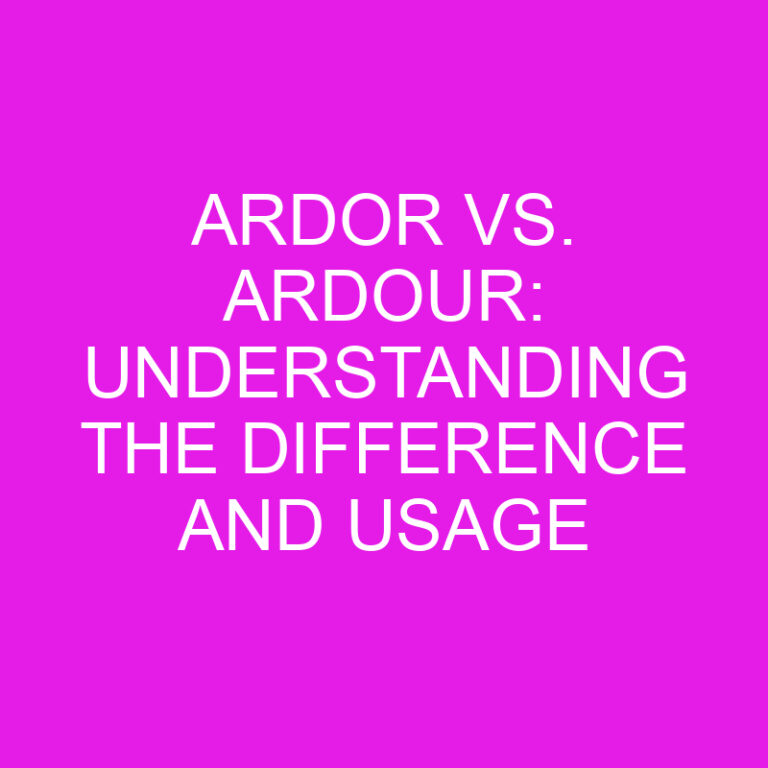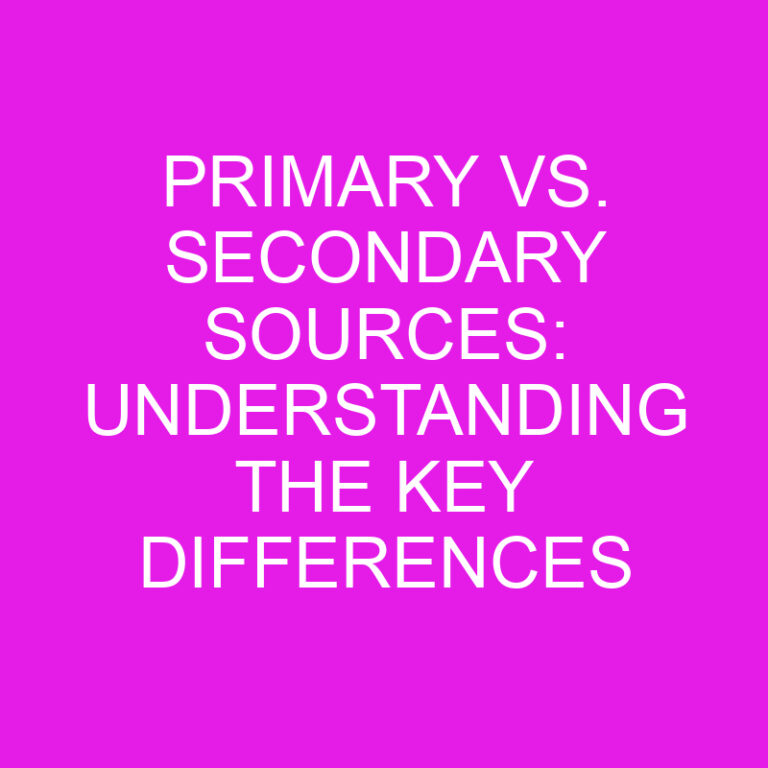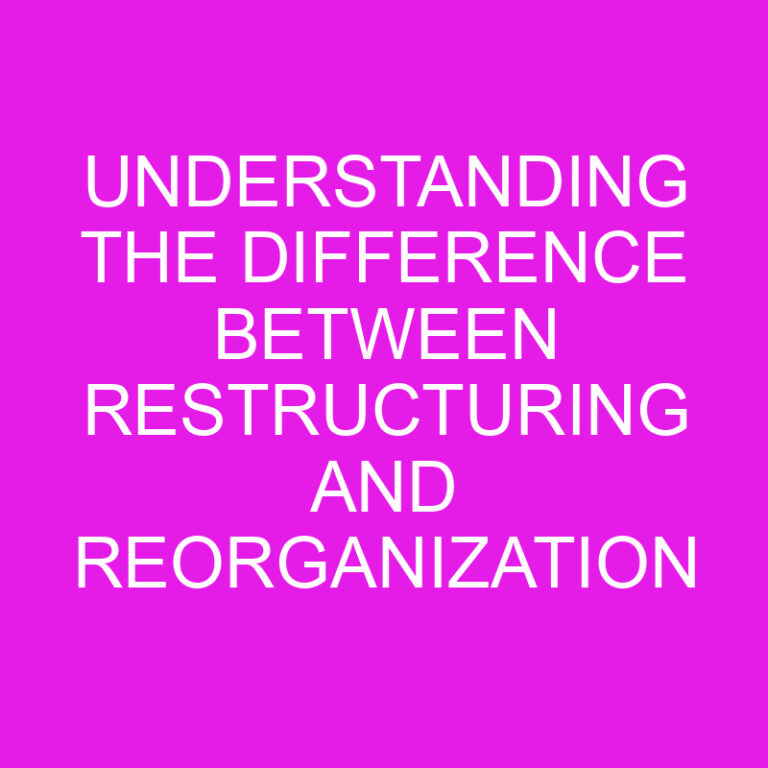
Belief and trust are two concepts that often go hand in hand, but they are not one and the same. While both involve having confidence in something or someone, there are distinct differences between the two. In this article, I’ll delve into the nuances of belief and trust, exploring how they differ in terms of perception, reliability, and emotional investment.
When it comes to belief, it is a deeply personal and subjective matter. It is rooted in our thoughts, convictions, and values. Belief is often based on faith, intuition, or personal experiences. It is a conviction that something is true or exists, even in the absence of concrete evidence. On the other hand, trust is more externally focused. It involves relying on someone or something based on their proven track record, reliability, and consistency. Trust is built over time through consistent actions and behaviors that demonstrate dependability.
In the following sections, we will explore these differences in more detail, examining how belief and trust manifest in various aspects of our lives. From relationships to decision-making, understanding the distinction between belief and trust can help us navigate the complexities of human interactions and make more informed choices. So, let’s dive in and unravel the intricacies of belief and trust.
Post Contents
- Key Takeaways
- Perception: How Belief and Trust Differ
- Reliability: The Key Distinction Between Belief and Trust
- Emotional Investment: Contrasting Aspects of Belief and Trust
- Belief and Trust in Relationships: Exploring the Differences
- Belief and Trust in Decision-Making: Making Informed Choices
- Conclusion: Navigating the Complexities of Belief and Trust
- Frequently Asked Questions
Key Takeaways
- Belief and trust are two distinct concepts that differ in terms of perception, reliability, and emotional investment.
- Belief is deeply personal and subjective, rooted in our thoughts, convictions, and values. It is often based on faith, intuition, or personal experiences.
- Trust, on the other hand, is more externally focused and involves relying on someone or something based on their proven track record, reliability, and consistency.
- Perception plays a crucial role in differentiating belief from trust. Belief is subjective and influenced by personal factors, while trust relies on objective evidence and real-life experiences.
- Reliability is the key distinction between belief and trust. Trust is built over time through consistent actions and proven reliability, while belief is based on personal thoughts and convictions.
- Emotional investment also differs between belief and trust. Belief is deeply rooted in personal experiences and values, while trust involves vulnerability and relies on the behavior and actions of others.
Perception: How Belief and Trust Differ
When it comes to understanding the difference between belief and trust, perception plays a crucial role. Belief is rooted in personal thoughts, convictions, and values, making it a deeply subjective experience. It is often based on faith, intuition, or personal experiences that shape our worldview.
Belief is based on an individual’s interpretation of reality and can vary greatly from person to person. Each of us has our own set of beliefs, shaped by our upbringing, cultural background, and personal experiences. Beliefs can be influenced by religion, philosophy, or even personal ideologies.
On the other hand, trust is more externally focused. It involves relying on someone or something based on their proven track record, reliability, and consistency. Trust is built over time as we observe the actions, behavior, and consistency of others.
Trust is not solely based on personal beliefs or experiences but rather on tangible evidence and a sense of reliability. We trust others when they consistently meet our expectations, behave ethically, and deliver on their promises.
While belief is deeply personal and can be influenced by subjective factors, trust relies on objective factors and is influenced by external proof and evidence. Trust can be earned or lost, but it is always based on real-life experiences and actions.
Understanding the difference between belief and trust is essential in navigating our relationships, both personal and professional. By recognizing that belief stems from personal perceptions and values, we can approach differing opinions with empathy and respect. Trust, on the other hand, requires consistency and is built through reliable behavior and actions over time.
Perception plays a pivotal role in differentiating belief from trust. Belief is subjective, rooted in personal thoughts and values, while trust relies on proven reliability and consistency. Recognizing this distinction allows us to approach others’ beliefs with empathy and build trust through consistent actions.
Reliability: The Key Distinction Between Belief and Trust
When it comes to understanding the difference between belief and trust, reliability plays a crucial role. While belief is based on personal thoughts and convictions, trust is more externally focused and relies on proven track records, reliability, and consistency.
Belief is deeply personal and subjective, rooted in our own thoughts, convictions, and values. It is often influenced by faith, intuition, and personal experiences. I believe, for example, that hard work and determination lead to success. This belief is shaped by my own experiences and perspective.
Trust, on the other hand, is built over time through observation. I trust someone when I have seen consistent and reliable behavior from them. Trust is not easily given, but rather earned through actions and proven reliability.
To further highlight this distinction, let’s consider an example. If someone tells me that they are a reliable and trustworthy individual, I may not automatically trust them based solely on their words. However, if I observe them consistently delivering on their promises and being reliable in their actions, I am more likely to trust them.
Reliability is the key differentiating factor between belief and trust. It is what sets trust apart from mere belief. It provides a solid foundation for trust to be built upon. When trust is established, it allows for stronger and more meaningful relationships to form.
While belief is personal and subjective, trust is based on proven reliability and consistency. By understanding the distinction between belief and trust, we can approach relationships and differing opinions with empathy and open-mindedness.
Emotional Investment: Contrasting Aspects of Belief and Trust
When it comes to belief and trust, both concepts involve a level of emotional investment. However, there are distinct differences in how each is experienced and expressed.
Belief is deeply rooted in our personal thoughts, convictions, and values. It is an internal process, shaped by faith, intuition, and personal experiences. Belief is subjective, unique to each individual, and often resistant to change. We hold onto our beliefs because they give us a sense of identity and purpose.
On the other hand, trust is more externally focused. It involves relying on the proven track records, reliability, and consistency of others. Trust is not easily given, but rather earned through actions and proven reliability over time. We place our trust in others when we believe they will act in our best interests.
One key distinction between belief and trust lies in their nature of vulnerability. Belief requires a willingness to be vulnerable, as it often involves taking a leap of faith or trusting in something intangible. Trust, on the other hand, requires vulnerability in a different way – we open ourselves up to potential disappointment or betrayal when we place trust in others.
Another contrasting aspect is the level of control we have over belief and trust. With belief, we have more agency to shape and change our own beliefs based on new information or experiences. Belief can evolve and adapt as we gain new insights. Trust, on the other hand, is reliant on the behavior and actions of others. Our ability to control trust lies in our decisions to give it or withhold it based on observed behaviors.
In relationships and interactions, understanding these contrasting aspects of belief and trust is crucial. Recognizing that belief is deeply personal and subjective, while trust is built through observation and reliability, helps us approach differing opinions and perspectives with empathy. It allows for a deeper understanding and acceptance of others’ beliefs, while also acknowledging the importance of trust in fostering strong and meaningful connections.
In the next section, let’s delve deeper into how belief and trust influence our decision-making process and shape our perceptions.
Belief and Trust in Relationships: Exploring the Differences
When it comes to relationships, both belief and trust play critical roles. However, they differ in significant ways that can impact the dynamics and understanding between individuals.
Belief in Relationships
Belief is a deeply personal and subjective aspect of relationships. It is rooted in our thoughts, convictions, and values. Beliefs are often influenced by factors such as faith, intuition, and personal experiences. They shape how we perceive the world and how we interpret the actions and behaviors of others.
In relationships, belief creates an emotional investment. It involves placing trust in someone’s character, intentions, and words. We believe in their ability to do what they say, to be there when needed, and to uphold shared values and commitments. Belief forms a foundation for connection and can provide a sense of security and stability.
Trust in Relationships
While belief is based on personal thoughts and convictions, trust is built through observation and experience. Trust is not easily given; it must be earned over time. It arises from the consistent and reliable behavior of others.
In relationships, trust involves relying on someone’s proven track record of reliability, consistency, and dependability. It is about having confidence in their actions and expecting them to follow through on their commitments. Trust enables individuals to be vulnerable with each other, knowing that the other person will respect and protect their vulnerability.
Understanding the Differences
Recognizing the differences between belief and trust is crucial in navigating relationships effectively. While belief is based on our internal perceptions and convictions, trust focuses on external evidence and reliability. Understanding this distinction can help foster stronger and more meaningful relationships.
In relationships, both belief and trust influence decision-making and shape our perceptions. Belief can influence how we interpret and react to others’ actions, as it is closely tied to our personal biases and experiences. Trust, on the other hand, allows us to rely on someone and feel confident in their abilities and intentions.
By understanding the differences between belief and trust, we can approach differing opinions and conflicts with empathy and openness. We can appreciate that while beliefs may differ, trust can still exist, facilitating understanding and cooperation.
Without a conclusion paragraph, let’s continue exploring the contrasting aspects of vulnerability and control, as well as the impact of belief and trust on decision-making and perceptions.
Belief and Trust in Decision-Making: Making Informed Choices
When it comes to decision-making, both belief and trust play significant roles in influencing our choices. As individuals, we rely on personal convictions and our perception of others to guide us through the decision-making process. Understanding the implications of belief and trust can help us make informed choices. Let’s delve deeper into how belief and trust impact our decision-making processes:
1. Belief in Decision-Making
Belief is an internal compass that directs our choices based on deeply held convictions and values. It involves a sense of faith, intuition, and personal experiences. Our beliefs shape our worldview and guide our actions. They can be influenced by cultural, religious, and personal ideologies.
In the realm of decision-making, belief can play a significant role. Our beliefs can sway us towards certain choices or deter us from others. They provide a foundation for our decision-making process and often align with our core values and principles. However, it’s important to acknowledge that beliefs can be subjective and may vary from person to person.
2. Trust in Decision-Making
Trust, on the other hand, is built through observation and experience. It relies on proven track records of reliability, consistency, and honesty. Trust enables us to feel secure and open ourselves up to vulnerability. In relationships, trust is essential for creating and maintaining strong bonds.
When it comes to decision-making, trust plays a crucial role in determining the level of confidence we have in a particular choice. We are more likely to make decisions when we trust the individuals or sources involved. Trust provides a sense of reliability and reassurance that influences our choices and the outcomes we expect.
While belief and trust are distinct concepts, they often intersect in our decision-making processes. They can complement or conflict with one another depending on the situation. Recognizing this interplay allows us to navigate our choices more effectively.
In decision-making, it’s important to validate and challenge our beliefs while considering the trust we have in the involved parties. By critically evaluating our own beliefs and examining the basis of our trust, we can make more informed choices that align with our values and minimize potential biases.
Understanding the nuances between belief and trust is essential for making informed decisions in relationships. Belief, shaped by faith, intuition, and personal experiences, guides us based on our deeply held convictions and values. On the other hand, trust is built through observation and experience, relying on proven reliability and consistency.
By recognizing the interplay between belief and trust, we can navigate the complexities of decision-making more effectively. We can make choices that align with our values and minimize the influence of biases. It’s important to remember that belief and trust are not mutually exclusive; rather, they work together to shape our perceptions and choices.
In relationships, both belief and trust are crucial. While belief provides a sense of direction and purpose, trust ensures that our actions are based on reliable information and evidence. By cultivating both belief and trust, we can foster stronger connections and make choices that are grounded in authenticity and integrity.
Ultimately, understanding the differences between belief and trust empowers us to make more informed decisions, leading to healthier and more fulfilling relationships. So, let’s embrace the complexities of belief and trust and use them as tools to navigate the intricacies of our lives.
Frequently Asked Questions
Q: What is the difference between belief and trust in relationships?
Belief and trust in relationships differ in their origins and development. Belief stems from personal experiences and faith, while trust is built through observation and consistency.
Q: How do belief and trust influence decision-making?
Belief serves as an internal compass and directs choices based on deeply held convictions and values. Trust, on the other hand, relies on proven track records of reliability and consistency. Both belief and trust play significant roles in shaping decision-making.
Q: Can belief and trust be biased?
Yes, belief and trust can be influenced by biases. Belief can be shaped by personal experiences that may not necessarily reflect objective reality, while trust can be biased by prejudices or prior experiences.
Q: Why is understanding the interplay between belief and trust important?
Understanding the relationship between belief and trust allows individuals to make more informed choices aligned with their values. It helps in recognizing biases and making decisions based on reliable evidence rather than subjective experiences alone.
Q: How can individuals minimize biases when making decisions?
To minimize biases, individuals can seek out diverse perspectives, consider objective evidence, and critically evaluate their beliefs and trust. Being open-minded and reflective can help in making less biased decisions.






